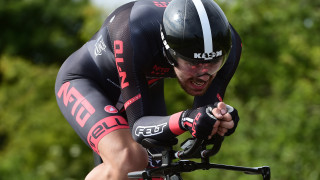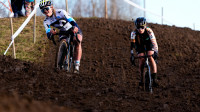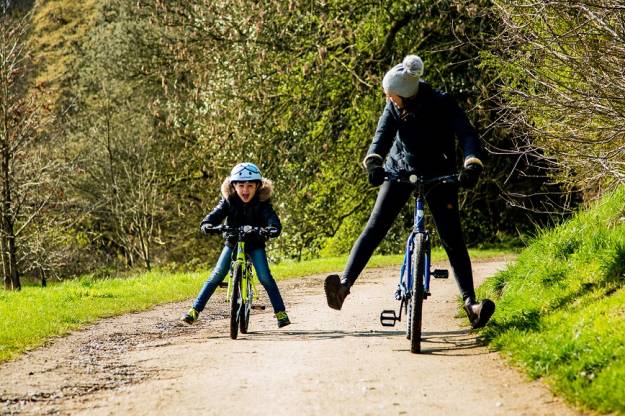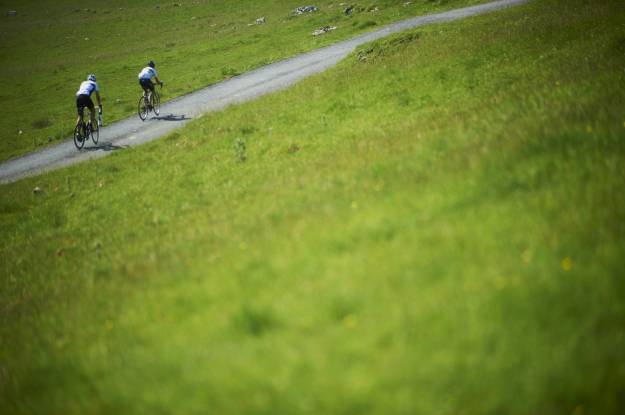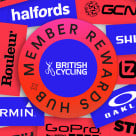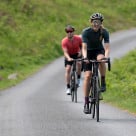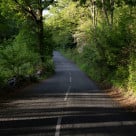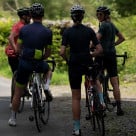Knowledge Level: Intermediate
Many time trials tend to have very early morning starts and, if you’re having to drive to the race HQ too, this can make getting your nutrition right tricky. You don’t want to eat too much too close to the race and risk feeling bloated or nauseous but equally, you don’t want to under perform because you’ve consumed too little. Fortunately, Healthspan Elite, the Official Sports Nutrition Partner and Official Vitamin and Supplement Partner to the Great Britain Cycling Team and British Cycling, is here with some advice.
The night before
Eat normally the day before an early morning event but but pay particular attention to hydration. You want to make sure you’re optimally hydrated in the 24 hours leading up to a ride rather than having to try and play catch-up in the morning which can lead to you needing the loo more often than normal. Avoid eating too late or it might impact on the quality of your sleep.
There’s no need for the vast plates of pasta commonly consumed in the name of the outdated concept of “carb loading”. Your body can only store a finite amount of energy in the form of glycogen and your normal diet should mean that it’s more than likely already full.
Avoid heavy and hard to digest red meat but instead opt for lighter proteins such as chicken or fish. Don’t overdo the fibre and steer clear of highly spiced food. Some carbohydrates, in the form of pasta, rice or potatoes, are great but remember you don’t need to go mad.
A sour cherry product can help with sleep.
0500
For a time trial starting at 0800, you’ll need to ideally allow three hours for your breakfast to digest before your hard race effort. At that time in the morning and with a nervous stomach, eating can be hard so, keep it light and digestible. Some muesli with yoghurt, a small bowl of porridge, poached eggs on toast or even a banana and oat smoothie can all work well. All riders are different and, something that one rider can happily tolerate, can leave another feeling nauseous, bloated and sluggish.
Experiment with what works for you in training or before less important events and, once you find something that works, stick with it. As well as your coffee, sip throughout the morning on a 500-750 ml bottle of isotonic sports drink. It’s important to remember that, for 10 and 25-mile events, you have enough carbohydrates reserves in your body, so there’s no need to force yourself to eat a large amount.
0700
Arriving at the Race HQ, sign on, pick up your race number, find out your start time and, working back from you start time, begin your warm-up so that you finish it 15 minutes before your slot. Your warm-up should be at least 20 minutes in duration and the British Cycling Warm-up is an ideal template to follow. Keep sipping on your water bottle and keep an eye on the start line to check they’re running on schedule.
0745
15 minutes before the race start, you should be coming to the end of your warm-up so, with the remaining liquid in your bottle, you might want to take an energy gel at this point and some riders like to use some caffeinated gum. This should leave you with 5-10 minutes before the start, plenty of time for a final loo stop and then to make your way to the line.
The Ride
For a 10-mile time trial, there should be no need to eat or drink for the entirety of the event. Coming out of your aero tuck to reach for a bottle or gel will lose time, break your rhythm and reduce focus. For a 25-mile event, some riders like to have a gel for the second half of the ride but it’s debatable whether it will kick in in time or is just fuelling their cool down.
If it’s warm, you will benefit from having fluids on hand during a 25. For significantly longer events, you will need to adopt a little, often and early approach, which you should have practiced in training. The guidelines here for a sportive or long training ride apply but, with the higher intensity efforts involved in time trialling, you may need to work at the lower end of the intake range and experiment with what you’re able to tolerate.
Post-Ride
Finishing your race before 0900-1000, it’s not optimal in terms of recovery to wait until lunchtime to eat but you don’t want to double up on a full meal either. Have a protein drink made up and ready to go at the finish line or back at your car. You can sip at it while cooling down. You probably won’t feel like eating immediately after a hard race but it’s important, ideally as soon as you finish, to kick start your recovery and protein is key to this.
You should aim to have your lunch or a snack, containing protein and carbohydrates, within 2-3 hours of finishing your event. A tuna sandwich or chicken and pasta would be good. Remember, even though your ride was hard, it won’t have been that long, so there’s no need to eat excessive amounts.

